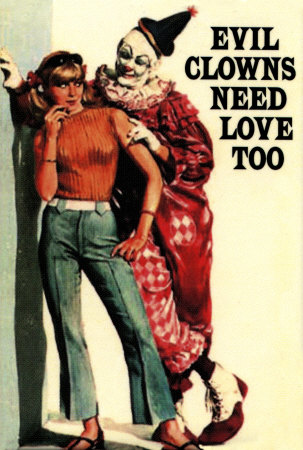Rebel wrote:
Alright, I am in the process of changing my mind, not there yet, but I now find it more likely that Rybka started its life as Fruit thanks to the contributions of Zach and BB. Having said that I am interested to have a discussion about the sense and nonsense of GPL.
Sense: I sympathize with the sentiment to share in order to make progress, usually the more people, the more progress as everybody has their own set of unique idea's.
Nonsense: the stipulations of GPL are a piece of mud. They incite to entrapment or incitement, I don't know the right English juridical term. Big chance a judge will trash GPL as entrapment. It may go like this in a court room:
Judge - Mister X, what have you done to protect your work?
X - I released my code under GPL.
Judge - Is that all?
X - Yes, your honor.
Judge - do you also leave your car, house unlocked?
X - No, your honor.
Judge - Why then your code?
X - I don't know sir.
Judge - If you leave your car unlocked and it's stolen because of that do you think the assurance company will pay?
X - no sir.
Judge - I will tell you my verdict. Mister X, you are behaving like a bank that stores all its money on the street, puts a sign on it with the text: forbidden to steal and then you come into my court room to complain that all is stolen. That is entrapment Mister X. You have an obligation to protect. Now get out my court room as soon as possible at your own chosen speed.
---
I have looked at the internet for GPL lawsuits and found no case of a verdict, only settlements. Perhaps I should look deeper.
Remains the issue of moral. And actually I find the concept of Reverse Engineering (RE) and then calling it your own a lot more corrupt then taking something that is said free (but hey!, don't use it as your own) and use it as a base to make something of your own by tons of changes, even fundamental ones (mail-box to bit-board).
I think this Rybka=Fruit issue got too much attention. Reason: sloppy GPL stipulations.
I can imagine that people with a scientific / university background will differ as they are raised in the opinion and conviction that everything should be free and should be shared for progress reasons but then PLEASE don't add such silly stipulations as an obligation to release the source code of something that is far beyond the original work.
Ed
Hi Ed,
As a disclaimer, I'm a graduate student and I've contributed to GPL code.

I think your hypothetical situation is way off the mark. If I leave my car unlocked, or my house unlocked, it is still a crime to steal it, or enter it. I have no obligation to protect, there is, however, and obligation for YOU to follow the law. If I leave $10,000 in the front seat of my car and leave the doors unlocked in my driveway, it is illegal for you to take the money, despite the fact that I'm an idiot. Whether or not an insurance company will insure me is a completely different matter.
Moving beyond your hypothetical example, as a software developer I want to make the source code available under the GPL for two reasons 1.) I want the user to be able to modify my software as they see fit, however, if they are going to widely distribute those modifications, I want to see what they changed so I can make my software better too. If they want to sell it, fine, I don't care, but when I buy it, I want access to the code as well, so I can change their software, and add my own tweaks 2.) I want to share the ideas found in my code.
If you're a developer and don't want either of those two things, then GPL shouldn't be used.
I'd say there is close to zero chance that a judge in the United States throws out the GPL. Software licenses, including commercial ones, exist to protect the content creators. Settlements happen because the infringing side knows they are infringing and they don't want to incur additional court costs on top of whatever the suit stipulates.
There are legal protections against reverse engineering. They are called patents. The catch is, you have to make your techniques publicly available. There is also DRM, however, once you go down this route, you may find that you're actually restricting the rights of the end users rather than the "bad guys" trying to infringe on your intellectual property.

